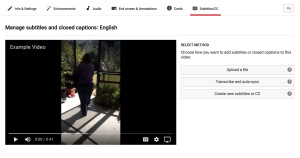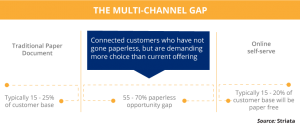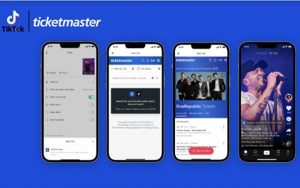It seems like 2024 has only just begun but many companies have already announced layoffs. After tech’s big “year of efficiency” in 2023, many thought layoffs had tapered off for now. But major tech companies like Amazon, Google, and Instagram have cut workers this month. Citibank was one of the first big banks to announce layoffs this year, as many banks reported lower Q4 profits. And biopharma companies like Lonza, Bayer, and Novavax announced their intentions to cut their workforce. BlackRock, Nike, and Intel also joined the lists of companies planning layoffs.
It’s clear that layoffs will continue to happen in 2024. Unfortunately, many leaders have recently made significant missteps when sharing layoff news. Here are three mistakes leaders make during layoffs and here’s what to do instead:
Laying people off over email
Google recently made headlines not just for announcing layoffs, but also for choosing to rely on email to notify employees that they were no longer with the company. They sent an early morning email, then locked employees out of the company’s systems and disabled security badges. Former Google engineer Jeremy Joslin tweeted: “It’s hard for me to believe that after 20 years at #Google I unexpectedly find out about my last day via an email. What a slap in the face.”
Google is not alone. In one instance, United Furniture let go of 2,700 employees over email and text messages that some employees woke up to seeing in the middle of the night on their phones. In 2023, Amazon let employees know over email that “You are no longer required to perform any work on Amazon’s behalf effective immediately.” In 2022, Meta employees woke up to emails in their inboxes letting them know they were terminated. Vox notified workers via email that they had been let go 15 minutes after a company wide memo went out. IT tech company PagerDuty not only let individuals go over email, but chose to include a Martin Luther King Jr. quote about overcoming adversity.
No matter how big or small a planned layoff is, leaders should not rely on technology to deliver the news. A large layoff is no excuse to not offer in-person conversations and treat your employees with the kindness and respect they deserve. Your employees deserve more than a two-line email letting them know they are no longer needed. How would you feel if you were let go by your employer with a curt email after everything you gave to an organization?
Upskill leaders on how to have layoff conversations with kindness and empathy. Provide brief scripts and training sessions for leaders, particularly if it’s their first time letting someone go. Allow them to role-play and ask questions. For those who need additional support on the day, have a human resources business partner available to join layoff conversations.
Making it all about you
Once when I experienced a layoff, my former manager cried and then started sobbing during our brief conversation. “I am so sorry” and “I had no choice” and “Please don’t hate me” were phrases she managed to choke out in between tears. I found myself devastated while trying to process what was happening, but felt forced to comfort her in the moment. I had to put her own comfort before my own.
Leaders, don’t make a layoff about you. Remember, you are an ambassador for your company. You may not have made the final decision on who has to move on, but you are the one who has been asked to deliver the layoff conversation. Refrain from making it about you at all. Don’t make excuses. Don’t try to absolve yourself of guilt or blame. Stick to the key messages and talking points you have been provided about why the layoff is happening.
Focus on showing kindness and empathy in the moment. If the individual is crying or silent, sit in the uncomfortable silence and allow them to process the news you are delivering. You can be supportive and say “I can only imagine that this is a lot to take in and process.” Remember to thank them for their contributions and to offer details on how they can be in touch with HR if they have further questions. And offer to help in their future job search if that is something you are willing to do.
Ghosting someone who has been laid off
When I experienced a layoff, there was a mix of emotions I struggled with: anger, sadness, shame, shock, and embarrassment. One of the most painful things I experienced was former bosses and employees distancing themselves from me. In some cases, individuals I was once close to completely ghosted me, and others heavily distanced themselves from me as if I was now contagious. I would get responses to my texts sometimes weeks later. It was as if they thought that if they stayed in touch with me, they might also experience a similar fate as me and lose their jobs.
If you once worked closely with someone on your team, don’t cut them off completely after the layoff. This doesn’t mean you have to become their best friend. But if you left the layoff conversation on amicable terms, you may want to check in on them a few weeks after to see how they are doing. I had a friend who experienced a layoff whose former boss took them out to lunch and introduced them to individuals in their network. Over the years, that friend and her former boss remained in touch.
If you reach out and they don’t respond, give them the space and time they may need. Don’t keep following up. They might still be processing the layoff, may not be prepared to engage with you, or may not want to stay in touch at all. Let them make the choice whether to stay in touch or not.
If someone who has been laid off does reach out to you for advice on their résumé, LinkedIn profile, or the best way to position themselves for another opening, help if you can. The easiest thing to do is to respond and say you hope they are doing well. Don’t ghost someone. Be transparent if you can’t help and wish them the best of luck in their search for their next opportunity.
Layoffs are never easy. Treating employees with kindness and respect during a layoff is a bare-minimum necessity to honor the time and contributions a worker has made. Don’t let a poor layoff experience end up defining how an employee feels about their experience working for you and the company.
(13)
Report Post






